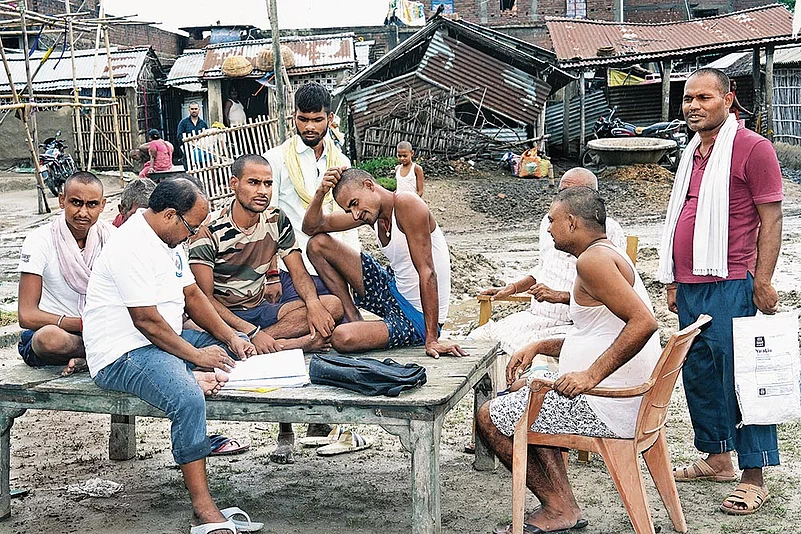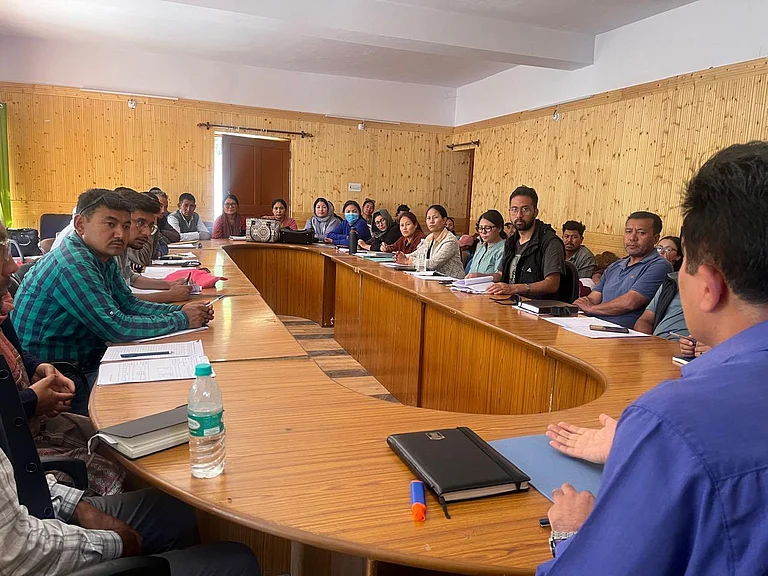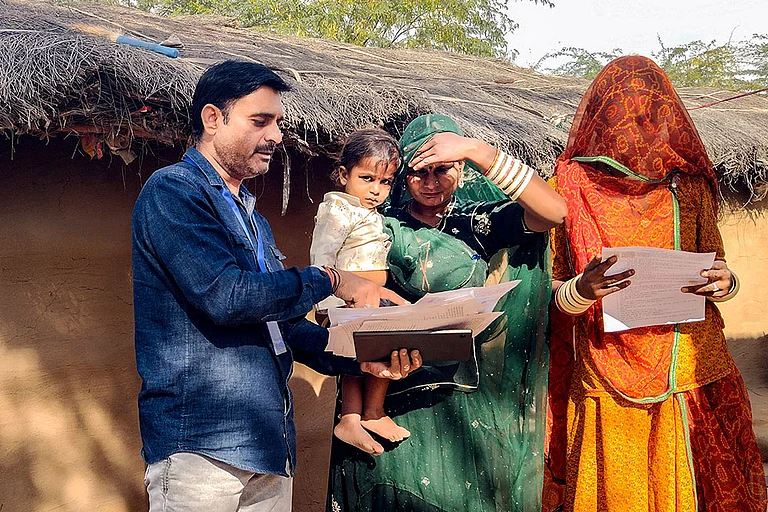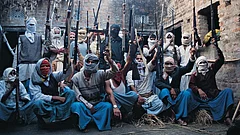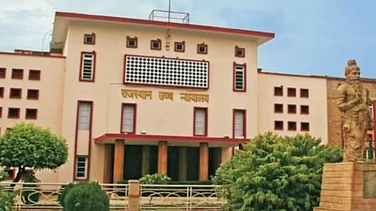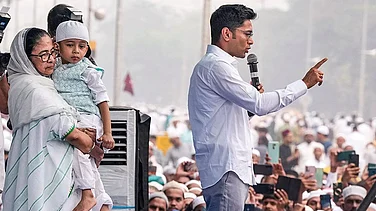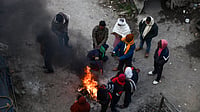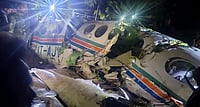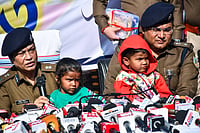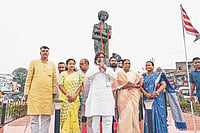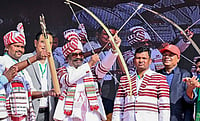In Chapar Diyara, a flood-prone village that straddles Bihar’s Katihar and Bhagalpur districts, the school bell has been temporarily silenced by bureaucracy. At the village’s primary school, Rakesh Ranjan, a regularised teacher, begins his day with a smile and a tap on the biometric attendance app on his phone. “I’m always here before time,” he says, standing in a half-constructed building where teachers trudge in with slippers in one hand and spare clothes in the other during the monsoon.
But for the past roughly one month, schoolwork has been paused. Several teachers are working as Booth Level Officers (BLOs), part of a state-wide Special Intensive Revision (SIR) to re-verify voters. The task: go door-to-door, collect voter re-enlistment forms and verify identities—without clear guidance on what exactly counts as proof.
The Election Commission’s stated goal is to clean the voter rolls across India, starting with Bihar, which has Assembly elections later this year. The initiative has triggered both civic participation and quiet panic. “They take our rations, they live here without papers,” says Rishi Kumar, a young resident of Chapar Diyar, referring to recent news about the “threat to national resources such as food grains from the ghuspethiya”. The term ghuspethiya is spoken with conviction here, but actual sightings are rare. Ask people if they have seen an illegal immigrant, and the answers turn vague or comical. “I’ve seen them,” says one man confidently. Where? “In Calcutta. They were tourists.” Another man chimes in: “We hear about them on mobile news. But here? No, no one’s ever seen one.”
Jitender from Sadhua Chapar, the village next door, believes outsiders can be identified by their language. Then he pauses and asks suspiciously, “Are you with citizens or infiltrators?”
Much of this fear is second-hand, fuelled by a recent news headline that Aadhaar cards in Seemanchal were far in excess of the population. As a result, residents often say: “The illegal immigrants are in Kishanganj, Katihar or in the cities, not here.” Others don’t know how to respond when asked if the outsiders, if any, could leave during the enumeration drive and return after elections—leaving the problem back where it was.
The irony is that while invisible “outsiders” spark fear and bureaucratic overreach, it’s locals—poor, illiterate, mentally ill or simply unlucky—who are at risk of being excluded. It’s also sparking conversations along religious lines that didn’t occur until the drive began. “The government wants to tackle the Rohingya Muslim immigrant problem,” says Rajeshwar Yadav, an elderly man from Chapar Diyar, adding, “However, there’s no Rohingya here—this village is pure Hindu.” As one BLO put it: “We’ve never seen a ghuspetiya, but we’re seeing our neighbours struggle to find papers to prove they belong.”
But this kind of “support” for the government’s intent coexists with deep confusion. The list of 11 documents for verification excludes the very items most villagers possess—Aadhaar, voter IDs, passbooks and ration cards. “We gave everything we had,” says Sangeeta Devi of Sadhua Chapar village. “But we don’t know what happens next.”
What happens next is August 1: the start of document verification, where only the 11 specified documents will be accepted. Until then, the BLOs are collecting whatever people are willing to give, a relaxation everybody thinks was largely granted to quell the disquiet.
Some residents, like 62-year-old Sunil Kumar Das, have been voters since 2003 and shouldn’t need to submit documents at all. Yet he is anxious. “What if our forms are rejected? We may lose our vote,” he says. In theory, voters like Das are exempt from the next step: scrutiny. In practice, no one is sure. BLOs like Nijamul in Sadhua Chapar are relying on local memory: “We know some people personally or from school, so we can verify them. Others—especially migrants whom we have not been able to contact—we can’t confirm.” (The Institute of Human Development notes in 2005 that 11 per cent of Bihar’s population consists of married women living apart from their husbands, who are working elsewhere.)
The concern goes beyond identification. For married women, verifying their birth through land documents—one of the accepted proofs—means dealing with claims that patriarchal families would rather not. “If a daughter gets a paper linking her with her father’s land or home, it triggers fears that she will demand her legal share,” says BLO Sunil Pal of Chapar Diyar.
In flood-prone, low literacy belts of Bihar, the drive has revived other bitter experiences with exclusion. “How can Dalits living in mud houses produce such documents?” asks Mantu Paswan from Rouna village in Gaya.
The documents include a government ID or pension papers issued before July 1, 1987, certificates from public authorities like banks, the Life Insurance Corporation, post office or Public Sector Units; birth certificate; passport; school certificates; domicile certificate; caste certificate; forest rights certificate; land or house ownership documents; family registers from local bodies and NRC certificate (though not applicable in Bihar).
In Jolbhigaha, Bigon Manjhi’s wife panicked after hearing from the local ration dealer that those not filling the form would lose ration entitlements. “She ran to me 15 km away in Sherghati,” says Manjhi. “We submitted Aadhaar cards with our forms. That’s all we had.”
The initial weeks were chaotic. BLOs were first told to collect forms with one of the 11 documents. Then they were instructed to accept forms without documents. “To boost form counts, we were told to accept whatever came,” says one BLO anonymously. By July 16, the Election Commission claimed to have received 6.99 crore forms out of Bihar’s 7.9 crore voters. Over 71 lakh deletions are anticipated—including 35.7 lakh not found at address, 12.5 lakh deceased, and 17.3 lakh shifted. Another 5.7 lakh were double-registered.
The speed and opacity of the process have drawn political fire. “This is NRC-plus-demonetisation,” says Communist Party of India (Marxist-Leninist) General Secretary Dipankar Bhattacharya. “Even in Assam, NRC took six years and people were told it was coming. Here, it’s one month, no warning.”
Nine opposition parties, including the Rashtriya Janata Dal, Congress and Trinamool Congress, have challenged the SIR in the Supreme Court. A hearing is scheduled for July 28.
While the Commission insists SIR is not a citizenship test, the impacts on the ground feel similar. In Seemanchal, a Muslim and outmigration-heavy belt, fears run deeper. Nazrul, a panchayat member in Kishanganj’s Satkowa village, recalls how 117 families lost all papers in a 2018 fire. “How do you get a birth certificate for someone born before 1987?” he asks. Reju Alam, 75, paid Rs 500 to a broker for a residence certificate. Ataur Rahman, 62, Abu Talib, 70, echoed the same worry: not being able to vote despite being born and raised in Bihar.
The inequity isn’t just in documents—it’s in access. In Gaya’s Lutwa Panchayat, in former Chief Minister Jitan Ram Manjhi’s constituency, people in villages like Tarwahdih say no BLO has visited them yet. “I’ve voted before,” says former ward member Ranjeet Bhokta. “Now they say we need land papers. But how do we submit forms when no one comes to collect them?” Villages like Jamunihar and Kothilwa echo this worry. It’s unclear if they will fall under the 35.7 lakh “absent/not found” voters or the 54 lakh who are yet to submit their enumeration forms by July 25.
Back in Sadhua Chapar, Nijamul says the system, in theory, is built for verification. But in practice, it may fail without trust. “If the electronic verification system we use says that a voter is ‘already verified by BLO’, we don’t know where or when that happened. So, people can still cheat if they want to. Ultimately, any system must rely on trusting those it is counting,” he shrugs. Yadav, the elder in Sadhua Chapar, says the process feels unfair. “The strong don’t leave their homes to work outside—only the poor do. And they’re the ones without papers.” He nods toward a man hovering nearby—a mentally unwell villager clutching a plastic packet of papers. “Whenever he hears the word ‘praman’ [proof], he starts fishing for his Aadhaar in his packet. What will happen to him?”
MORE FROM THIS ISSUE
Md Asghar Khan is senior correspondent from Jharkhand
Pragya Singh is Senior Assistant Editor, Outlook. She is based in delhi.
In Jungle Raj, Outlook’s August 1 issue, we explored why the Bihar elections matter so much. Our reporters delved into the state’s caste equations, governance records, electoral controversies and national ambitions, along with taking a hard look at the law and order situation— all of which make the 2025 Bihar Assembly elections one of the most consequential state polls of this electoral cycle.







